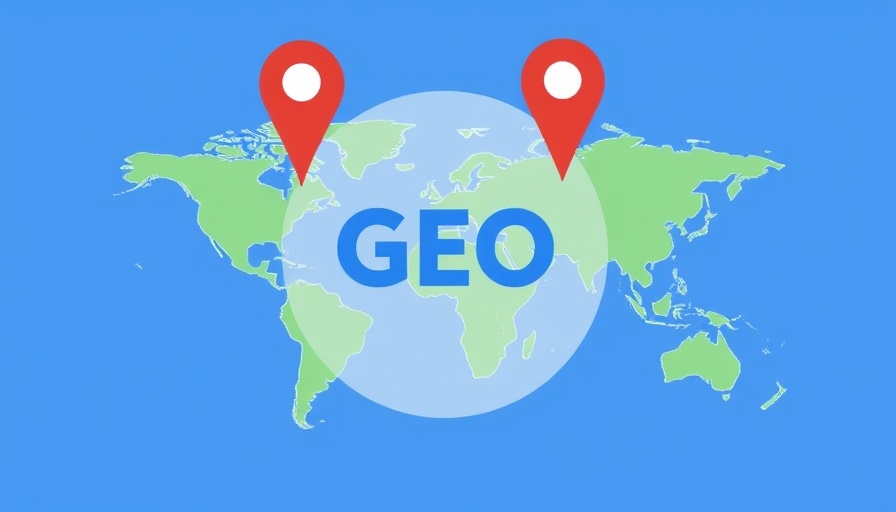
What is Generative Engine Optimization (GEO)?
Generative Engine Optimization (GEO) marks a transformative shift in how businesses connect with consumers. Rather than relying on traditional search engine optimization (SEO) strategies, which focused on securing spots in the blue links of search results, GEO reshapes the approach to customer engagement by leveraging AI-driven platforms and chatbots. Companies must now ensure that their brands are recognized and endorsed by popular chatbot systems like ChatGPT and Gemini, allowing potential buyers to discover their offerings through personalized, conversational interactions rather than generic search results.
Why the Shift Matters for Small Business Owners
For small business owners, understanding the significance of this transition is crucial. Traditional SEO processes often relied on keyword stuffing and backlink strategies that could feel disconnected from genuine customer experiences. With the rise of GEO, small businesses have the opportunity to engage more meaningfully with their target audiences. Utilizing tools like ChatGPT allows them to create tailored content that resonates with users, ultimately guiding them toward making positive purchasing decisions directly influenced by chatbot recommendations.
How GEO Transforms Customer Research
The rise of AI chatbots is redefining how consumers research products and services. Gone are the days when potential buyers sifted through endless lists of mediocre SEO results filled with generic information. Consider this scenario: Instead of scanning a host of bland reviews about laptops, a consumer can turn to ChatGPT, which offers a comprehensive analysis of various products, listing pros and cons in an easily digestible format. This personalized approach not only streamlines the user experience but also positions businesses as credible sources of valuable information, ultimately leading to increased sales.
The Rise of AI-Driven Search Engines
The data speaks volumes: referral traffic from chatbots has soared by 357% year-over-year. As consumers become more comfortable seeking information from AI sources, businesses must adapt to this evolving landscape. Prominent AI-driven search engines like Perplexity have gained millions of users, demonstrating how traditional methods of information exchange are quickly becoming outdated. Even tech giants like Google are adjusting to this paradigm shift; with AI Overviews claiming up to 20% of search queries, it is essential for brands to adapt their digital strategies now.
Actionable Tips for Implementing GEO
To effectively implement GEO, small business owners should consider a few key practices:
1. Content Quality: Prioritize high-quality, engaging content that addresses user needs. AI tools can help refine and tailor content to be more user-centric.
2. Optimize for Chatbots: Ensure your brand features prominently in conversations with chatbots by building relationships with AI creators and providing valuable information they can present to users.
3. Gather Feedback: Utilize insights from chatbot interactions to continuously improve your offerings and better meet consumer expectations.
Embracing the Future of Marketing
The shift from SEO to GEO is not merely a passing trend; it is indicative of a broader transformation in how businesses interact with customers. Small business owners must embrace this change, utilizing AI tools to adapt their marketing strategies for the new landscape. Progressing in this realm can lead to significant advantages in visibility and customer engagement, paving the way for long-term success.
If you're ready to step into the future of online marketing, consider how integrating Generative Engine Optimization can position your brand ahead of the competition. Stay informed and be proactive in applying these principles to transform your business strategy today!
 Add Row
Add Row  Add
Add 




Write A Comment